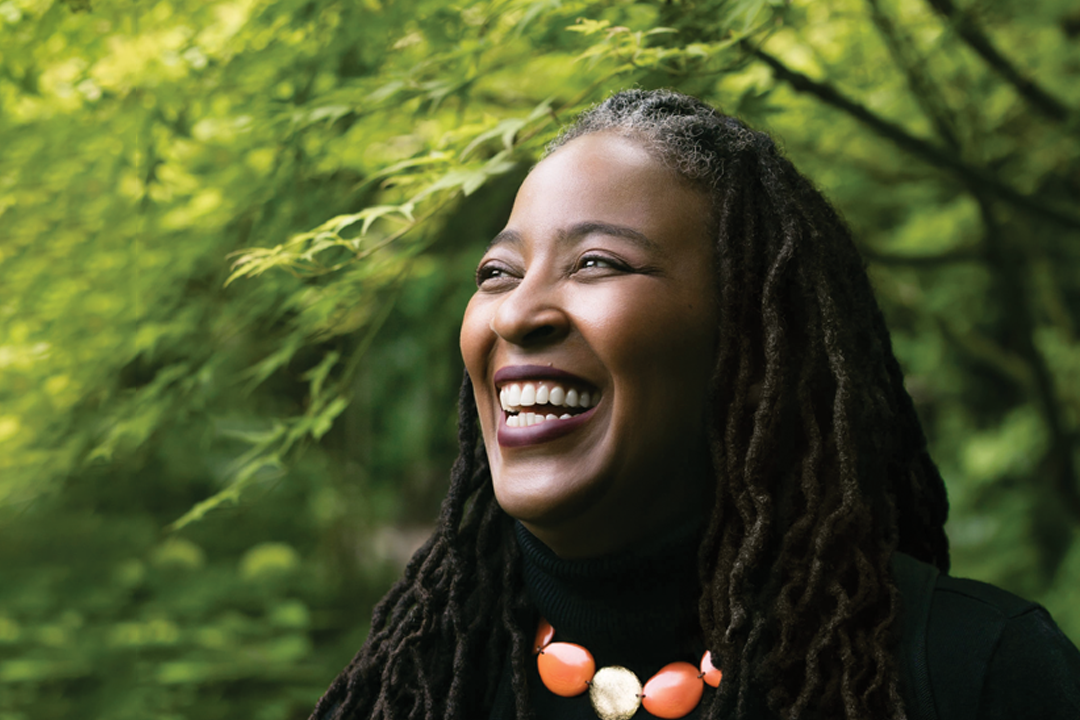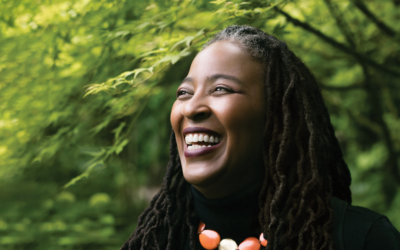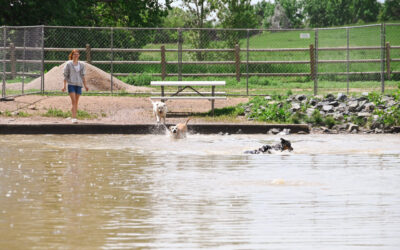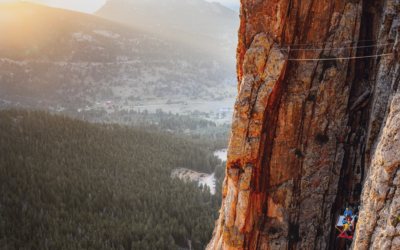Camille Dungy will, at times, plan her gardening plots by peering out the window. She may see a pesky, rebellious patch of weeds and decide, on the spot, to fight it.
It’s a battle that’s lasted since 2014, a year after she and her husband bought a house in Fort Collins to raise their daughter in, who is now 12 years old. She decided to rip out her lawn after observing what was growing (a monolithic blanket of grass) and, more importantly, what wasn’t. She replaced it with patches of pollinator-friendly native plants, wildflowers and vegetables, including a parcel she calls “the prairie project.”
The land would not give easily. It involved a lot of digging up unforgiving rock, composting and tending to the soil, work that reminded her of her age and the limitations of her body, not to mention all the energy she spent raising a family, writing poetry and teaching at Colorado State University.
Dungy sees the same struggle in society to overcome racism and promote equality. She discusses both the drama of her evolving garden and her thoughts on how it resembles society, our history and what it says about class and culture in her new book “Soil,” which was released in early May.
Writing about the environment and nature was already a passion of hers—something she couldn’t help but delve into further after visiting Fort Collins many times and eventually moving there. Every time she visited, she felt a magnetic center, she says, a sense that it was home. Surrounded by the abundance of the outdoors, she felt connected to nature, and she maintains that connection today by walking in our region’s many natural areas. She also experiences it through the visceral bond that comes from digging in the dirt.
“So many of our ideas about gardens are linked to historical constructs of class, culture and beauty,” Dungy says. “A lot about being a black woman in America is linked to culture and class and access. So, of course there are intersections with my own experience of navigating the world and the lessons my garden teaches me in helping to reframe community ideas on how things should look and behave and what we should value.”
Dungy’s other environmental works include editing an anthology called “Black Nature” and one of her four collections of poetry, “Smith Blue.” But she wanted to write her first full-length story, “Soil,” in part, as a balm for her irritation at a genre where many of the classic books were written by white men on solitary journeys to experience the outdoors.
The genre includes works by John Muir, who is often referred to as the “Father of our National Parks.” Those journeys were privileged treks of enlightenment, many of which are unrealistic, even unreachable, by the general population. They require wealth, status and the ability to take large chunks of time away from the grind of daily life, including obligations to families and friends.
Instead, “Soil” details a Black woman’s struggle in returning her yard to a more natural state. She counts this as time outdoors, and she hopes others can see it that way for their own daily lives. Exploring outside can mean visiting a park with your kids or hiking at a nearby natural area (one of Dungy’s favorite activities).
“That’s not a position most of us can take,” Dungy says of the long, solitary trips in nature. “Most of us have to think about other people. I don’t want to feel like I need to erase the presence of my family and community to engage with the natural world. I like people, and I like my community, and I like my family.”
Dungy has spoken to many people who didn’t think they had the right to call themselves “nature lovers” because they didn’t have access to large tracts of land and the solitude within it. She says that’s dangerous because it can cause people to think they don’t have to care about the environment. That connection is vital for us to ultimately survive as a species, Dungy suggests.
“It’s imperative that we consciously act within the awareness of a connection with the planet,” she says. “It’s imperative to our survival. The planet is in peril because of us.”
Dungy hopes her experience is enlightening in many ways, but one main idea she hopes readers can discern from her book is that anyone can turn their bluegrass blanket into a pollinator’s paradise. She is a self-taught gardener who learned through books, talking to others and watching videos and seminars online. Then she just winged it, she says with a laugh, except for her “prairie project,” which she built using a kit she got from the City of Fort Collins.
“So much of this is experimental,” she says. “It’s trial and error, which is fine. So many [people] told me not to go into this without a plan. I didn’t have a plan.”
She admits she had an advantage, even a privilege, by living in Fort Collins and Colorado, both of which protect the rights of a homeowner (to a degree) to have drought-resistant gardens full of native plants. She also dodged the watchful eye of her HOA by keeping her yard tidy instead of surrendering it to weeds.
She says she needed native plants after spending much of her life in Southern California.
“It’s hard to garden here,” Dungy says. “Southern California is basically Eden. Everything grows there. Here, I had to have plants that didn’t fight me. They were the kinds of plants that were much kinder to someone learning how to do it here.”
She learned over the years through observation—a practice that involved noting what the birds and insects were drawn to—and she made pacts with the wildlife, including the rabbits that wanted to snack on her hard work (her solution was to plant a lot more of it). She also got help from local nurseries.
Dungy still struggles in her garden from time to time. Her plan to convert her remaining grass to buffalo grass instead of the thirsty Kentucky bluegrass isn’t going well. But that reminds her of us, right now: a world that doesn’t seem any less chaotic than the summer of 2020 with its political protests, global pandemic and wildfires.
“It’s very easy to get super exhausted because there’s so much work to be done,” she says. “This is truly a scary time. But also, I can stop and look and see how far we’ve come. It’s because there’s so much that’s been done that there’s still so much more work to do.”
The weeds still fight, and the hard rock breaks through the soil, and it hurts to remove both. And yet, Dungy feels a sense of peace and pride when she looks at what’s been accomplished.
“Really seeing what has been done feels good,” she says. “It feels good.”







